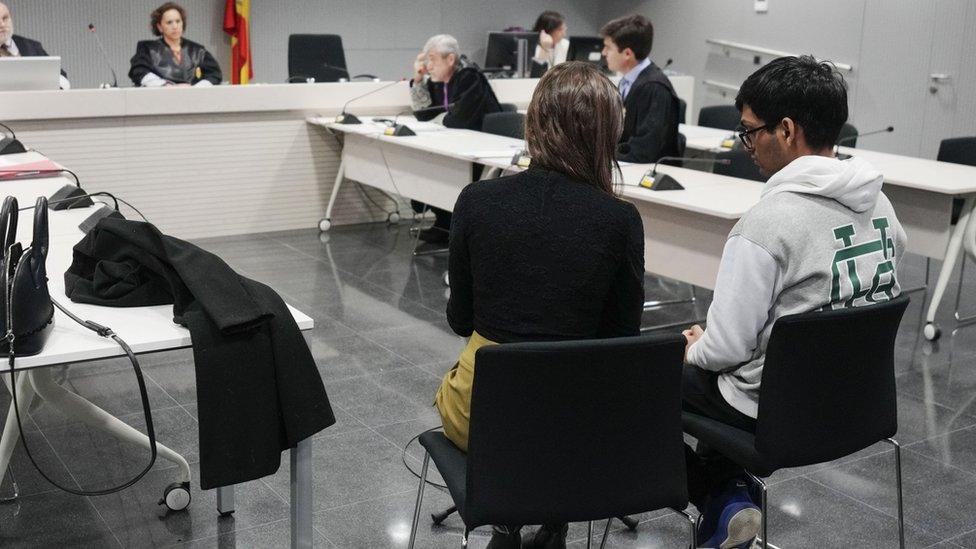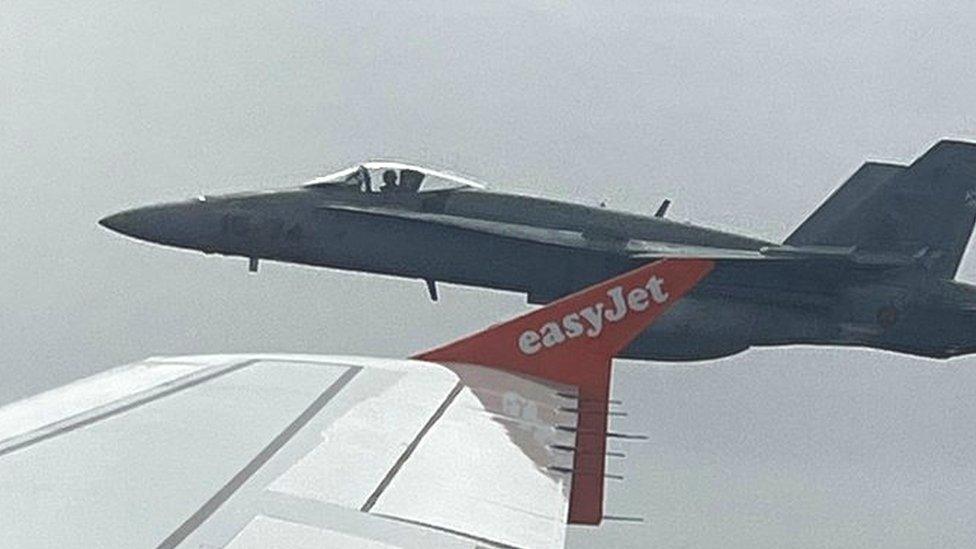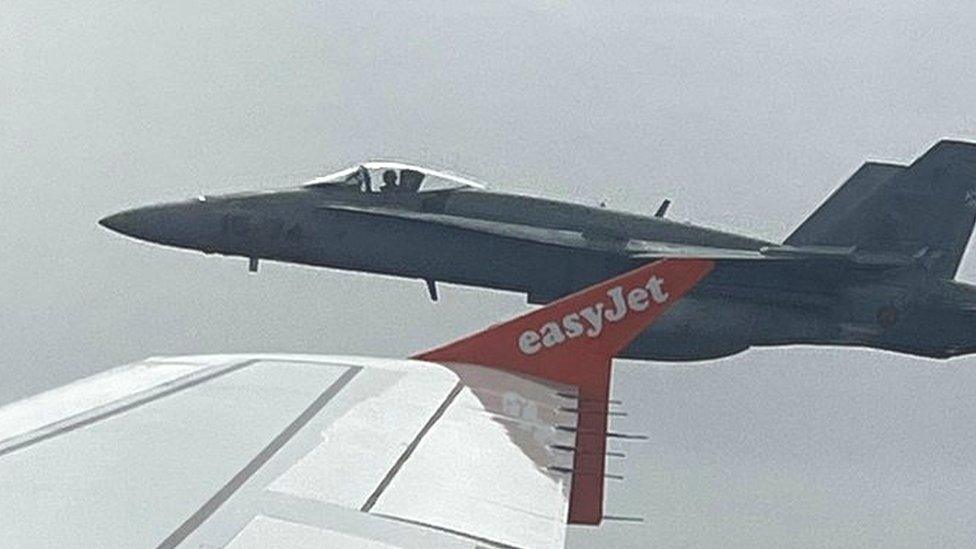British man acquitted over London-Spain flight bomb hoax
- Published

Aditya Verma (R)'s one-day trial at Spain's National Court took place earlier this week
A Spanish court has cleared a British man of public disorder, after he joked to friends about blowing up a flight from London Gatwick to Menorca.
Aditya Verma admitted he told friends in July 2022: "On my way to blow up the plane. I'm a member of the Taliban."
But he said he had made the joke in a private Snapchat group and never intended to "cause public distress".
A judge in Madrid ruled that "no explosive... was found that would lead one to believe it was a real threat".
Mr Verma's trial, held at the National Court in the Spanish capital, took place on Monday - a year-and-a-half after the incident took place.
The message he sent to friends, before boarding the plane, went on to be picked up by UK security services. They then flagged it to Spanish authorities while the easyJet plane was still in the air.
Two Spanish F-18 fighter jets were sent to flank the aircraft. One followed the plane until it landed at Menorca, where the plane was searched.
Mr Verma, who was 18 at the time, was arrested and held in a Spanish police cell for two days. He was later released on bail.
A judge ruled earlier that Mr Verma, of Orpington, Kent, should be cleared of any wrongdoing.
If he had been found guilty, the university student faced a fine of up to €22,500 (£19,300) and a further €95,000 in expenses to cover the cost of the jets being scrambled.

One of the two Spanish F18 fighters seen through the window of the easyJet flight from London to Menorca
A key question in the case was how the message got out, considering Snapchat is an encrypted app.
One theory, raised in the trial, was that it could have been intercepted via Gatwick's Wi-Fi network. But a spokesperson for the airport told BBC News that its network "does not have that capability".
In the judge's resolution, cited by the Europa Press news agency, it was said that the message, "for unknown reasons, was captured by the security mechanisms of England when the plane was flying over French airspace".
The message was made "in a strictly private environment between the accused and his friends with whom he flew, through a private group to which only they have access, so the accused could not even remotely assume... that the joke he played on his friends could be intercepted or detected by the British services, nor by third parties other than his friends who received the message," the judgement added.
It was not immediately clear how UK authorities were alerted to the message, with the judge noting "they were not the subject of evidence in this trial".
A spokesperson for Snapchat said the social media platform would not "comment on what's happened in this individual case".
On its website, in a section titled "How We Work with Law Enforcement Authorities", external, Snapchat says one of its goals is to "maintain a safe and fun environment where Snapchatters are free to express themselves and stay in touch with their real friends".
It adds: "We also work to proactively escalate to law enforcement any content appearing to involve imminent threats to life, such as school shooting threats, bomb threats and missing persons cases, and respond to law enforcement's emergency requests for disclosure of data when law enforcement is handling a case involving an imminent threat to life.
"In the case of emergency disclosure requests from law enforcement, our 24/7 team usually responds within 30 minutes."
Additional reporting by Laura Gozzi and Monica Soriano
Related topics
- Published22 January 2024
